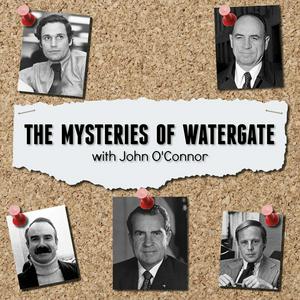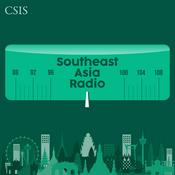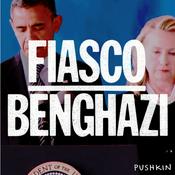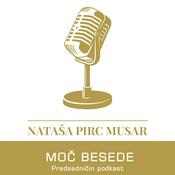36 episódios

Ep. 34: Watergate Journalism's Bitter Harvest
09/10/2021 | 24min
Prior episodes have shown that the Nixon Presidency, churlishly cynical though it may have been, was the victim of deceitful journalism by the Washington Post which cast it far more villainously than deserved.Was the harm of this journalism limited to this particular epoch? Unfortunately, no. This episode will show but a few examples of how this greatly ballyhooed style of “investigative” journalism caused far more harm than partisan electoral advantage. In its effort to prosecute a target, such journalism must by its very nature conceal and distort, which, when applied to matters of national security, can endanger us all, either by excessive manacles placed on our intelligence agencies, enabling terrorist attack, or, at the other extreme, allowing these same agencies carte blanche skullduggery when they are pursuing a partisan domestic target to the benefit of a foreign adversary. In short, for decades American society has been reaping Watergate journalism’s bitter harvest.________________________________________ Thank you for listening! For more information such as a hyperlinked Cast of Characters, visit themysteriesofwatergate.com. And if you like what you've heard, please leave us a 5-star review on Apple Podcast and pick up a copy of the new book, "The Mysteries of Watergate: What Really Happened" on Amazon.

Ep. 33: Watergate Journalism, The Seeds of Our Discontent
01/10/2021 | 29min
Clearly the full and correct Watergate story was not reported by the Washington Post. Often a journalist simply gets a story wrong while acting in good faith. But if the Post was willfully deceitful in its Watergate reporting, not simply negligent, then the entire modern project of slashing “investigative” journalism is built on fraud. Is today’s partisan journalism based on a “proof of concept” that was obtained by fraud? If so, our country has been divided horribly by the Washington Post’s Watergate journalism, the seeds of our discontent.________________________________________ Thank you for listening! For more information such as a hyperlinked Cast of Characters, visit themysteriesofwatergate.com. And if you like what you've heard, please leave us a 5-star review on Apple Podcast and pick up a copy of the new book, "The Mysteries of Watergate: What Really Happened" on Amazon.

Ep. 32: A Lid on Liddy
24/9/2021 | 30min
G. Gordon Liddy, a lawyer, former FBI agent and chief operative in the White House Plumbers unit at the time, was a central focus for Watergate activity, even though he is correctly, and admittedly, seen as a dupe. But he was an honest man, incapable of insincerity, such that his 1980 memoir, Will, is know to be the most candid and honest of the Watergate confessionals. Liddy, stoutly refusing to seem a “rat,” said nothing about the scandal until this book, and therefore it was not until 1980 that the public could learn many behind-the-scenes facts, implications of which required detailed Watergate knowledge to understand. These implications were, properly presented, explosive. The perceived expert on all things Watergate, Bob Woodward, did a full book review, the public’s last best chance to truly understand Watergate. Would this famed reporter truthfully inform the world of these earthshaking facts, and more importantly, explain to the uninformed why these facts are so significant? As news was proceeding to become history, would Woodward and the Washington Post be an aid to truthful history or would they put in historical concrete a false narrative for generations to consume? Tune in to this most enlightening evidence of how our democracy is dying in darkness.________________________________________ Thank you for listening! For more information such as a hyperlinked Cast of Characters, visit themysteriesofwatergate.com. And if you like what you've heard, please leave us a 5-star review on Apple Podcast and pick up a copy of the new book, "The Mysteries of Watergate: What Really Happened" on Amazon.

Ep. 31: Baking Baker
17/9/2021 | 39min
As impeachment was closing in on President Nixon, the CIA could, it seemed breathe a sigh of relief, as it had skillfully and luckily, with the unstinting help of the Washington Post, navigated rocky shoals. The Mullen cover contract (Ep. 3), Michael Stevens’ bombshell stories (Ep. 14), Lou Russell’s involvement (Ep. 15), the desk key found during the Watergate breakin (Ep. 16), CIA handler, Lee Pennington's document burning (Ep. 17), the CIA Defense offered during the burglary trial (Ep. 27), blackmail claims (Ep. 28), and Bittenbender's reports had all been avoided in the public narrative. So nothing could derail our country’s first presidential impeachment, correct? But what if an honest CIA Security Officer, wishing not to be obstructive, forced disclosure of previously concealed CIA documents to the Senate? The Democratic Majority would not wish to touch them, but what about the Republican Minority, led by Tennessee Senator Howard Baker, heretofore cowed into submission by the Washington Post? And with the televised hearings long concluded, how would the Republican Minority reach the public? Tune in to this chapter of Watergate, regarding the little-read Baker Report, that has been lost to history.________________________________________ Thank you for listening! For more information such as a hyperlinked Cast of Characters, visit themysteriesofwatergate.com. And if you like what you've heard, please leave us a 5-star review on Apple Podcast and pick up a copy of the new book, "The Mysteries of Watergate: What Really Happened" on Amazon.

Ep. 30: Stranger Danger, Hiding Stevens and Russell
10/9/2021 | 26min
As of late March 1973, it looked like all the pieces were falling in place for the CIA to avoid exposure of its role in the Watergate scandal and to hide the salacious information actually targeted. If Watergate continued to be viewed as a campaign fiasco, John Dean’s and Jeb Magruder’s testimony against their superiors in the White House would be increasingly valuable. But there loomed, as Watergate burglar James McCord was unleashing to Judge Sirica about the White House, two serious dangers to this view of Watergate: Michael Stevens and Lou Russell. They worried Dean and Magruder more than they threatened the CIA. Stevens and Russel especially threatened a newspaper which was about to be awarded a Pulitzer Prize for its Nixon-targeted reporting. Can you guess which paper, and whether it reported truthfully about Russell and Stevens? Could that paper have helped avoid at least one needless death?________________________________________ Thank you for listening! For more information such as a hyperlinked Cast of Characters, visit themysteriesofwatergate.com. And if you like what you've heard, please leave us a 5-star review on Apple Podcast and pick up a copy of the new book, "The Mysteries of Watergate: What Really Happened" on Amazon.
Mais podcasts de Ciência política
Podcasts em tendência em Ciência política
Sobre The Mysteries of Watergate
Ouça The Mysteries of Watergate, Conexão Brasília-Ceará e muitos outros podcasts de todo o mundo com o aplicativo o radio.net

Obtenha o aplicativo gratuito radio.net
- Guardar rádios e podcasts favoritos
- Transmissão via Wi-Fi ou Bluetooth
- Carplay & Android Audo compatìvel
- E ainda mais funções
Obtenha o aplicativo gratuito radio.net
- Guardar rádios e podcasts favoritos
- Transmissão via Wi-Fi ou Bluetooth
- Carplay & Android Audo compatìvel
- E ainda mais funções


The Mysteries of Watergate
baixe o aplicativo,
ouça.
























